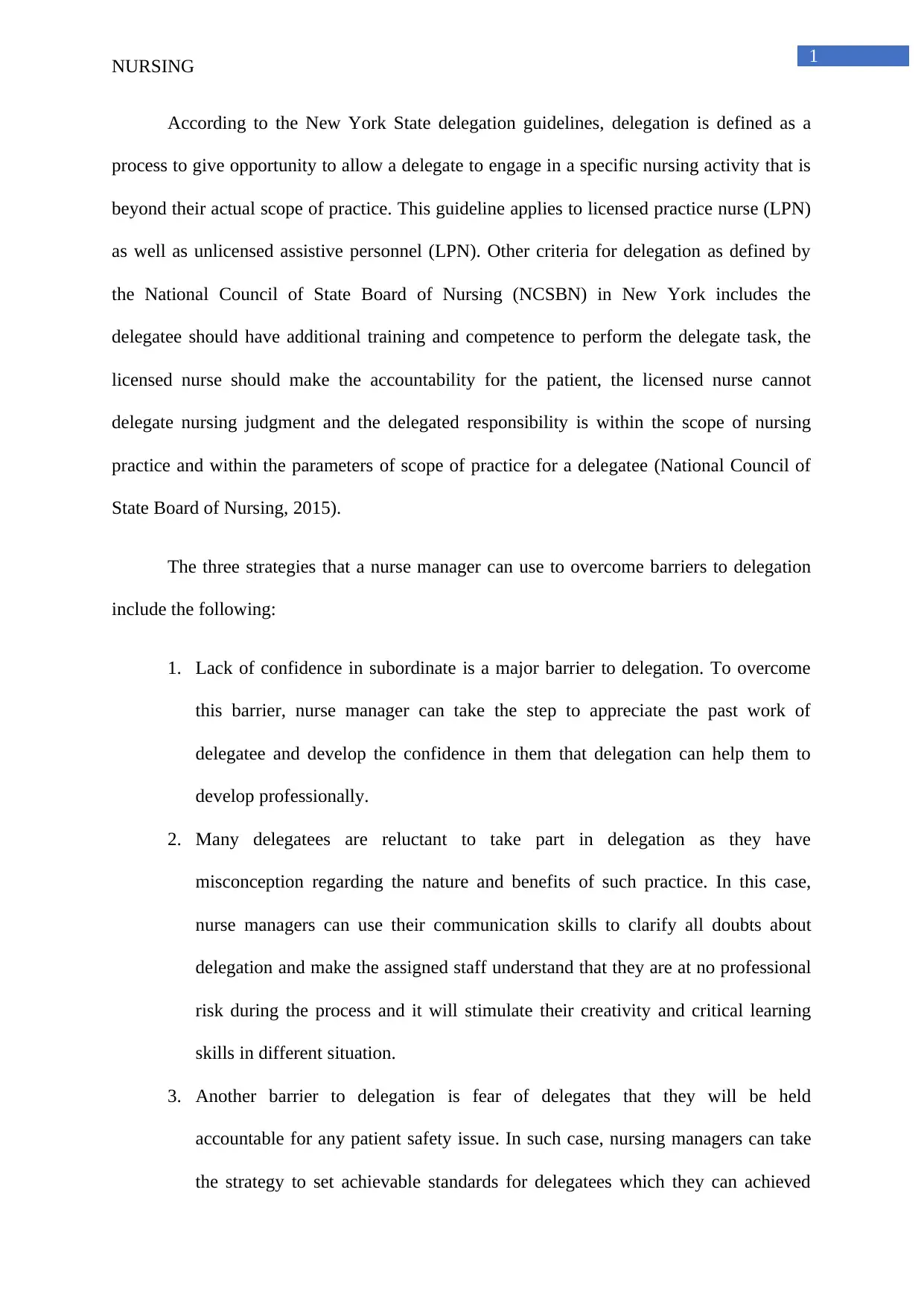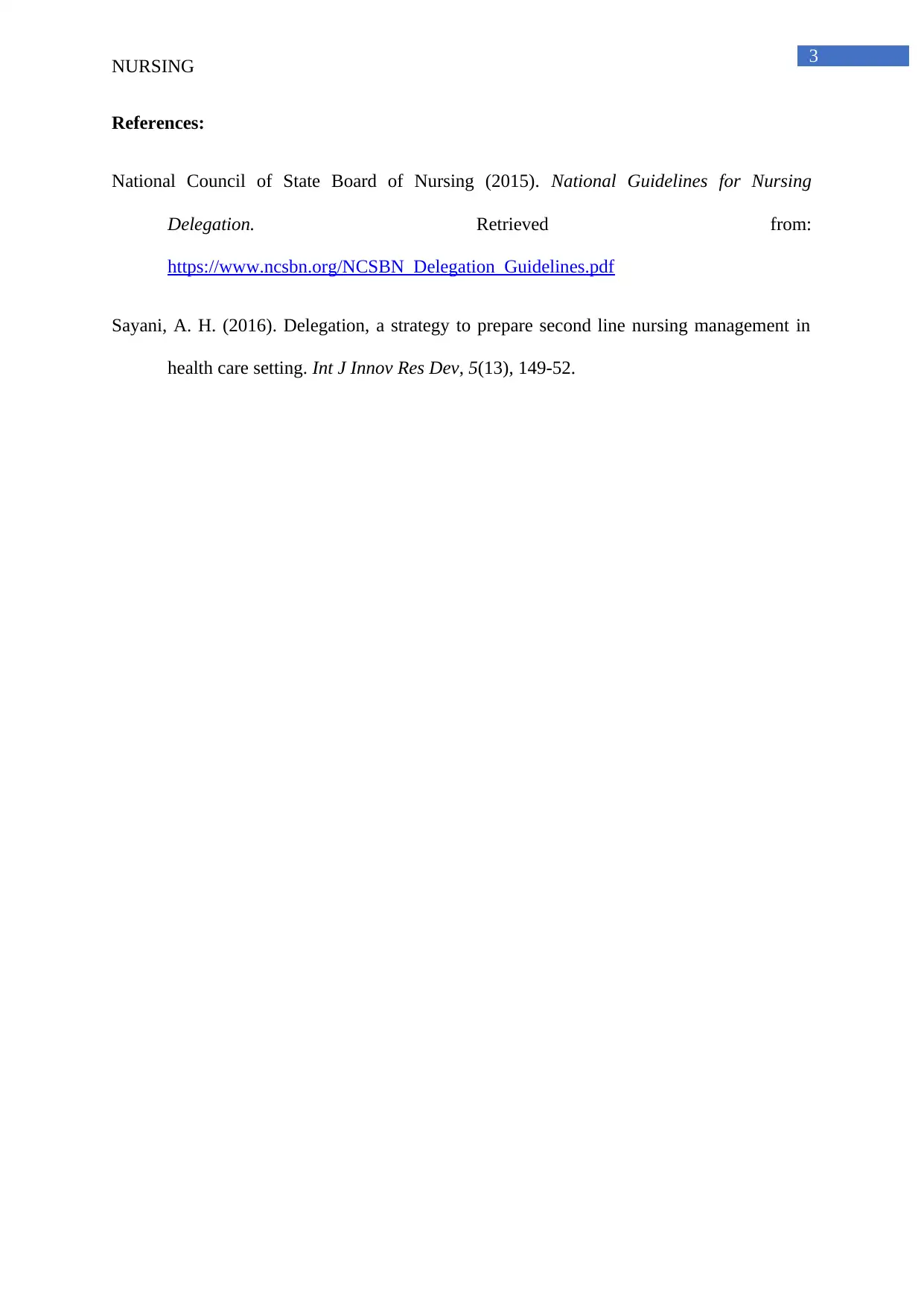Nursing Delegation Report: Leadership Strategies in Nursing Practice
VerifiedAdded on 2022/12/29
|4
|432
|40
Report
AI Summary
This report examines nursing delegation, focusing on leadership strategies to overcome barriers in nursing practice. It begins by defining delegation according to the New York State guidelines and the National Council of State Board of Nursing (NCSBN), highlighting the roles of Licensed Practical Nurses (LPNs) and unlicensed assistive personnel. The report then identifies and discusses three key strategies for nurse managers to address barriers to delegation, including building confidence in subordinates, clarifying misconceptions about delegation, and addressing concerns about accountability for patient safety. The report includes references to relevant literature on delegation in healthcare settings.
1 out of 4











![[object Object]](/_next/static/media/star-bottom.7253800d.svg)